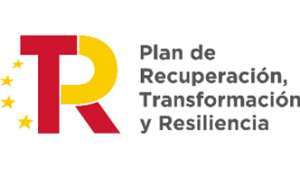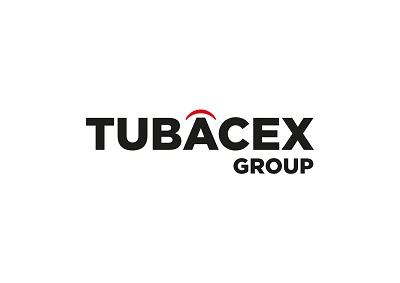- The HY2DEC project will research new technologies for the production and use of green hydrogen to contribute to the decarbonization of the Spanish intensive industry.
- The project will be developed by a consortium led by Tubacex with the participation of six other Spanish companies, TORRECID S.A., TÉCNICAS REUNIDAS S.A., GHI HORNOS INDUSTRIALES S.L., GECSA CONDUCTORES Y CONEXIONES ESPECIALES S.A., ORCHESTRA SCIENTIFIC S.L., and KERIONICS S.L.
- The project has the contribution of 7 research organizations CEIT, ICIQ, ICP (CSIC), IKERLAN, INCAR (CSIC), ITQ (CSIC) and TECNALIA.
- HY2DEC has been incorporated into the Missions Program of the Center for the Development of Industrial Technology (CDTI) having obtained the third highest score in the last edition of the program.
Context
Climate change is having a growing impact on our planet and its mitigation is an increasingly urgent challenge. It is necessary to carry out a gradual decarbonization of all sectors of the economy that will lead to achieve the objectives set by the European Commission of emission neutrality in 2050.
In this context, the research project led by Tubacex entitled “Research of new technologies for the production and use of green hydrogen for the decarbonization of the Spanish intensive industry” with acronym HY2DEC is born.
Tubacex as a strategic supplier of advanced products and industrial services for power generation and mobility, leads within the framework of its open and sustainable innovation strategy, the business group that develops the R&D project Hy2DEC, whose main objective is to research, develop and validate new emerging technologies for the production and use of hydrogen and green oxygen, as well as CO2 capture and its integration in processes of the Spanish intensive industry with the purpose of advancing in its decarbonization.
This project will be developed by a consortium of 7 Spanish companies. ACERIA DE ALAVA S.A., (Tubacex Group), TORRECID S.A., TÉCNICAS REUNIDAS S.A., GHI HORNOS INDUSTRIALES S.L., GECSA CONDUCTORES Y CONEXIONES ESPECIALES S.A., ORCHESTRA SCIENTIFIC S.L. y KERIONICS S.L.
In addition, the project has the contribution of 7 research organizations CEIT, ICIQ, ICP (CSIC), IKERLAN, INCAR (CSIC), ITQ (CSIC) and TECNALIA.
Project
The cooperative business R&D project entitled “Research on new technologies for the production and use of green hydrogen for the decarbonization of the Spanish intensive industry” and with the acronym “HY2DEC”, has been subsidized by the Center for Technological Development and Innovation (CDTI) and supported by the Ministry of Science and Innovation within the 2022 call of the Science and Innovation Missions program.
It is worth mentioning that this project within the framework of the Missions Program has obtained the third best qualification -ex aequo with the second one- among all the projects presented in this call of the program.
The Hy2DEC project aims to respond to the challenges involved in the decarbonization of the intensive industry through a sustainable production and use of hydrogen and green oxygen and a CO2 capture that closes the positive balance of emissions. For this purpose, and in parallel to the experimental research, Hy2DEC will carry out a study of the gaps and needs of the intensive industry processes to advance in their decarbonization and an evaluation of potential solutions to be provided by the technologies under study, all this in the context of two use cases of intensive processes such as steel and ceramics. Figure 1 shows an outline of the Hy2DEC project and the participation of the partners in the different research axes of the technologies studied.
The technologies that will be the object of research in this project can be grouped into three main axes:
On the one hand, Hy2DEC will advance the knowledge and implementation of two emerging technologies in the field of green hydrogen production by electrochemical means.
The second pillar focuses on the research of new designs and heat generation devices that implement the use of green hydrogen as fuel.
The third technological pillar is oriented to the study and implementation of CO2 capture technologies including the valorization of waste from the industry involved and thus contributing to the circular economy.
![]()
Diagram of the Hy2DEC project, showing the research axes of the technologies studied in the rectangular cells as process units, the activities in which they are undertaken (AX) and the partners participating in each of them through their corresponding logos. In addition, the mass and energy flows into and out of the process units are illustratively indicated with the help of arrows.
Specifically, the participation of each of the companies involved in this project is as follows:
Acerálava (Tubacex Group):
Will investigate a new solution to reduce natural gas consumption, as well as CO2 emissions by optimizing overall energy consumption, and identifying synergies of heat utilization and circularity through waste valorization.
Técnicas Reunidas:
Will research in emerging technologies for hydrogen and green oxygen production via development of anion exchange membrane electrolyzers (AEM) and development of proton membrane electrolysis cell electrolyzers (PCEC). It will also research in the development of technologies to capture CO2 from industrial emissions, as well as its integration in intensive industrial processes for decarbonization.
Torrecid:
It will research on ceramic materials for ceramic membranes in electrocatalysis processes in PCEC for hydrogen generation, as well as in the use of such hydrogen in frit fusion processes to reduce emissions. Additionally, he will research on carbon dioxide capture processes and their integration into melting furnaces.
GHI:
Will research into furnace heating systems that use renewable energy sources and energy efficiency systems to reduce greenhouse gas emissions by at least 50%.
Gecsa:
Will research and develop a new power electronics solution to strengthen current solutions for electrolysis plants and melting furnaces.
Orchestra:
Will research a new CO2 absorption technology using TAMOF-1 on an industrial scale in the form of pellets or granules, mechanically stable and resistant to stress.
Kerionics:
Will research and develop a new generation of electrochemical cells that enable water electrolysis to be carried out in an energy-efficient manner and under milder conditions (temperatures below 600 °C).
The project, which has a total budget of EUR 5,872,941, is expected to be completed in 2025, when the scalability and industrialization of the prototypes developed by the participating agents will be conceptualized.
 |
 |
 |

